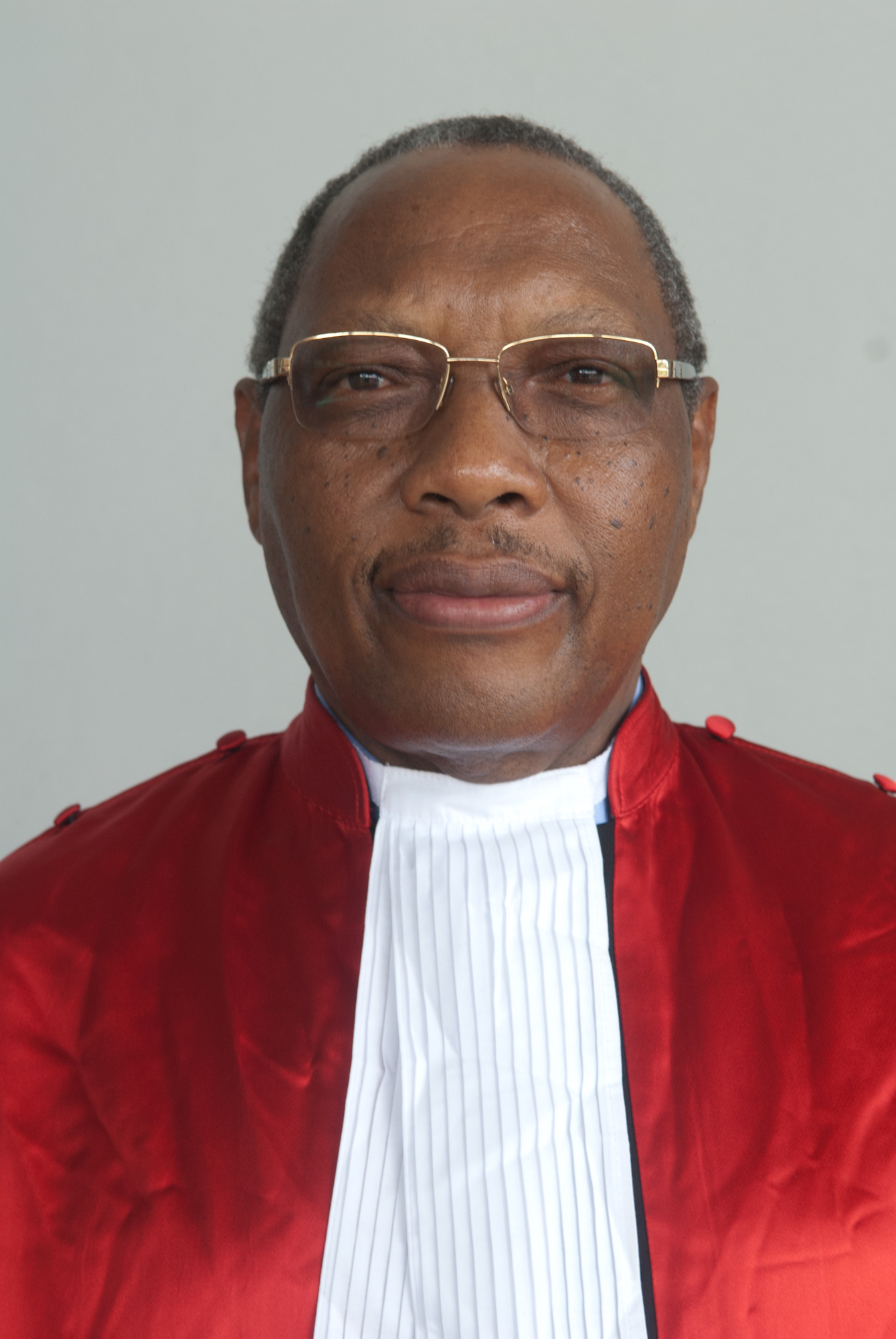
Justice Waki qualified from the University of Nairobi with a Bachelor of Laws (Hons) Degree in 1974, before admission to the Roll of Advocates in Kenya in 1975. For twenty years thereafter, he was in private practice in all Kenyan Courts until he joined public service upon appointment by the President of Kenya, on the recommendation of the Judicial Service Commission, as a Judge of the High Court in October 1995. Eight years later, in June 2003, he was promoted to the Court of Appeal which was the highest court in Kenya until the Supreme Court was created under the Kenya Constitution, 2010. He has served as the Presiding Judge of the Court of Appeal in Nyeri, Head of the Civil Division, and Acting President of the Court.
In January, 2012, through a competitive process, he was appointed by the United Nations Secretary General and the President of Sierra Leone, to serve at the level of Undersecretary General of the United Nations as an Alternate Judge of the Appeals Chamber in the UN Special Court for Sierra Leone, sitting in The Hague, Netherlands. After closure of the court in December 2013, he was appointed by the UN Secretary General to serve as a Judge of the Residual Special Court for Sierra Leone and was elected by the plenary of Judges of that Court as the President for a period of three years. He is still a serving Judge of the court.
In his 24-years of public service in the Kenya judiciary, Justice Waki was deeply involved in the reform agenda of that institution of governance. He chaired, or was a member of, various committees which were instrumental in laying firm foundations for the transformation of the Judiciary, including: the Rules Committee, the Expeditious Disposal of Cases Committee, the Technical Co-ordination Committee of the Governance, Justice, Law and Order Sector (GJLOS) Program, the Judiciary Information and Communication Technology (JICT) Committee, the Judiciary Transformation Committee, and the Court Users Committee. He is a past Council member of the Kenya Judges and Magistrates Association, Vice President of the East African Judges and Magistrates Association, and a member of the Commonwealth Judges and Magistrates Association in his own right. He is also a long-standing Associate member of the Chartered Institute of Arbitrators (Kenya) since 1993.
Justice Waki was among the first Judges in the Kenyan Judiciary to be trained in Environmental and Human Rights Law, and in enhancing the role of the Judiciary in promoting their enforcement and compliance. He has since trained other Judicial officers and has attended and delivered papers in numerous conferences in Kenya, East Africa, and other parts of the world. In 2012 he was appointed by the Director of UNEP as one of nine eminent members worldwide, to serve in the International Advisory Council on Environmental Justice, (IACEJ) which provided strategic guidance to the international community in improving the legal foundations for achieving international environmental goals, and overcoming legal barriers to inclusive sustainable development.
Outside the Judiciary, in May 2008, Judge Waki was appointed by the National Dialogue and Reconciliation Team and the President of Kenya, to chair an international Commission of Inquiry into Kenya’s post election violence, often referred to as the WAKI COMMISSION. In October 2008, the Commission submitted a comprehensive report to President Kibaki and Dr. Kofi Annan, the head of the Panel of Eminent African Personalities who mediated the conflict. The report, which was adopted by Parliament, was a key foundation of Kenya’s reform process leading to a new Constitutional dispensation.
In 2008, he was honoured by the International Commission of Jurists (Kenya) as the Jurist of the year, and in the year 2015, the high national honor of “Elder of the Burning Spear” (EBS), was conferred on him by the President of Kenya.
He was married for 34 years to one wife who passed on through breast cancer in April 2013, and has three sons, one daughter, two daughters–in-law and three grandsons. He has also brought up three young orphans through university to adulthood. He is now retired from the Kenyan judiciary upon attaining the age of 70 years but has rejoined the Law Society of Kenya as an Advocate of the High Court of Kenya, and Commissioner for Oaths. In the year 2020, he was co-opted as a member of the Board of Management of The Nairobi Hospital where he has served for two years.
As a member of the larger community, he has played crucial roles in educating disadvantaged children, served as chairman of Boards of Management in several schools, and participated in local development projects. He likes Golf, travelling and meeting people.
DATED at Nairobi in September, 2022.

